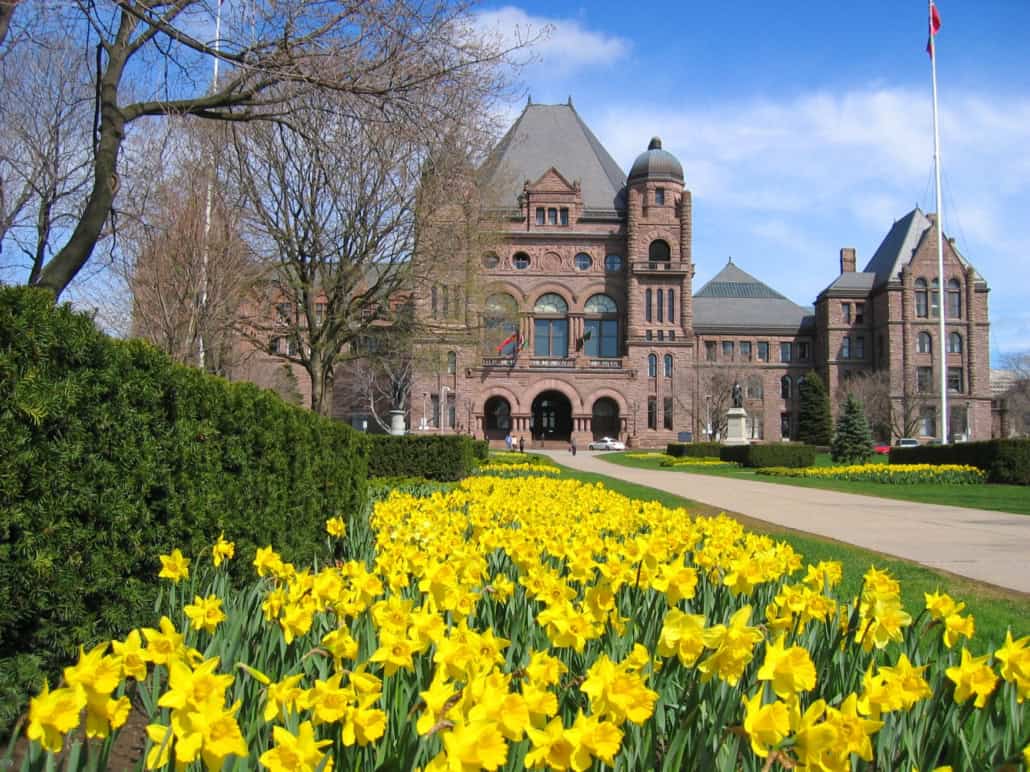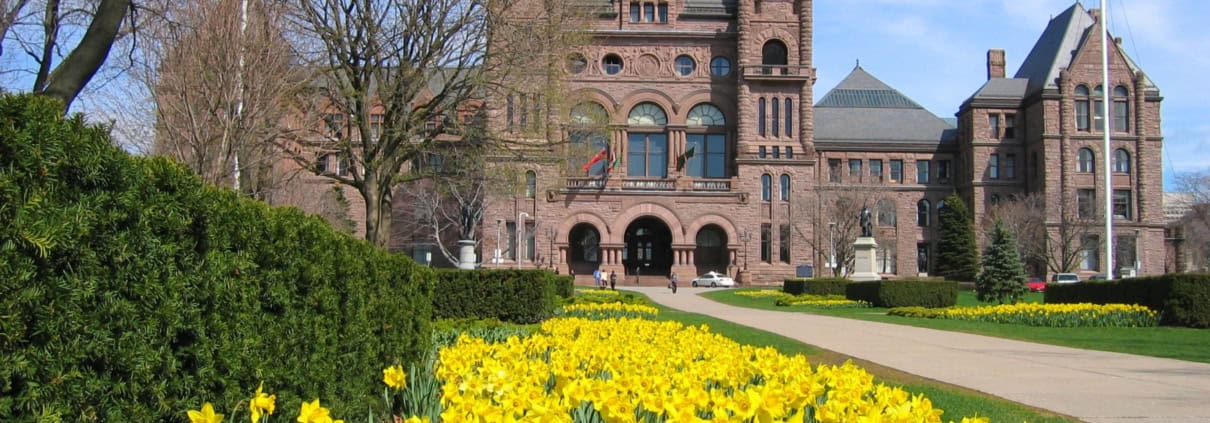2024 Ontario Budget spends big on infrastructure as province’s fiscal health weakens

If last year’s budget was about restraint, the prevailing theme at Queen’s Park yesterday was that the $214 billion 2024 Ontario Budget was one designed with fiscal balance in mind. Specifically, Doug Ford’s Progressive Conservatives made it clear leading up to the budget announcement that while they weren’t prepared to make particularly ambitious new spending commitments at a time of economic uncertainty—made worse by a weakening economy, lingering inflation and a decline in tax revenue after a post-pandemic surge—they were still prepared to spend in priority areas.
“It’s going to be a very balanced budget, per se,” Ford commented prior to budget day. “We’re going to focus always on supporting the 444 communities through infrastructure.”
Ontario Finance Minister Peter Bethlenfalvy’s 2024 budget stayed true to that promise, but at a price, as plans to achieve fiscal balance were delayed. The government is now projecting a deficit of $3 billion for the 2023-24 fiscal year, $9.8 billion for 2024-25 (nearly double the $5.3 billion projection in the 2023 Fall Economic Statement) and $4.6 billion in 2025–26. An election year surplus of $500 million is being projected for 2026–27. But the budget stresses that, “The future pace of economic growth remains uncertain, which may impact these projections.”
Notably, gross domestic product is expected to slow from an estimated 1.2 per cent in 2023 to a meagre 0.3 per cent in 2024, before rebounding to 1.9 per cent in 2025 and 2.2 per cent in 2026 and 2027.
Other factors contributing to the province’s weakening fiscal health include increased public service compensation costs, infrastructure and public service expenditures. Specifically, Queen’s Park will make payments of more than $6 billion to public sector workers after its wage-cap legislation was struck down in court. It is also planning to extend the 5.7 cent per litre gas tax cut until the end of 2024.
The government’s proposed infrastructure expenditures include more than $190 billion over 10 years to build more homes, improve high-speed Internet access and other critical infrastructure, while continuing to build and expand highways. Previously announced measures include $1 billion for the new Municipal Housing Infrastructure Program and boosting the Housing-Enabling Water Systems Fund to $825 million for the construction of new or improved municipal water infrastructure.
The measures come in response to calls for greater infrastructure investment in order to support the construction of much-needed housing across the province. Municipalities that meet provincially mandated housing targets will have access to funding from the $1.2 billion Building Faster Fund.
Other key budget measures include:
- An additional $2 billion over three years for home and community care support, including an increase in compensation for personal support workers, nurses and other frontline care providers
- An additional $965 million in 2024–25 to fund hospital operations and improvements
- An additional $620 million over 10 years for the Health Infrastructure Renewal Fund and the Community Infrastructure Renewal Fund, along with an additional $500 million over 10 years for small hospital projects and community health programs
- $743 million over three years to hire more health care workers across the province
- $396 million over three years to fund mental health and addiction services
- $546 million over three years to bolster access to primary health care teams
- A proposal to establish a new medical school dedicated to training family doctors
- $155 million for the construction of long-term care homes
- $94 million over three years to fund health and well-being programs for Indigenous and Northern communities
- $200 million for a new community sport and recreation infrastructure fund for new and upgraded sport, recreation and community facilities
- An additional $15 million over three years for the Critical Minerals Innovation Fund
- An additional $100 million for the Invest Ontario Fund to attract new jobs and investments to the province
- An increase to the Northern Energy Advantage Program (NEAP)—to a total of $167 million in 2024–25, and $206 million annually in 2025–26 and 2026–27—to support job growth in Northern Ontario
- $15 million to enhance the Critical Minerals Investment Fund for research, development and commercialization efforts across Ontario’s mining sector
- A proposed ban on new tolls for existing provincial highways and a freeze on fees for driver’s licenses and Ontario photo cards
- $172 million for the 2024–25 school year for targeted math and reading support programs
- An additional $100 million in 2024–25 for the Skills Development Fund Training Stream for worker hiring and re-training
- An additional $16.5 million annually over three years to attract more young people to skilled trades
- A proposal to reform auto insurance requirements that would allow drivers to opt out of certain types of coverage. The government says the measure would help to improve insurance affordability and access to benefits
- An expansion of the Ontario Guaranteed Annual Income System (GAINS) program and a proposal to index the GAINS benefit to inflation; Starting in July 2024, the maximum GAINS benefit will increase to $87 per month for eligible single seniors and to $174 per month for couples
- $49 million over three years to help police combat increasing auto theft
- An additional $13.5 million over three years for programs that support women, children, youth and others who are at increased risk of violence or exploitation
- A proposal to extend authority to single- and upper-tier municipalities to impose a tax on vacant homes in their communities
While Ontario Budget 2023 announced plans to conduct a comprehensive—and long overdue—review of the provincial tax system, Budget 2024 provides an update on the initiative. After consulting with tax experts, economists and business leaders, the government says “… the tax system review will focus on opportunities to update the tax system to support greater productivity, including on innovation and research, to promote fairness, to enable greater simplicity and transparency, and to modernize administration.” So, not much in the way of concrete progress or proposed reforms. But Budget 2024 did announce plans to conduct a review of the province’s property assessment and taxation system.
We can only hope that these reviews will result in the simplification of an often cumbersome and onerous tax system, reducing compliance complexity for the province’s business owners and individual taxpayers.
In all, Ontario Budget 2024 may have been built for balance but is largely focused on budgeting for the unknown, as the province’s fiscal position remains highly uncertain. With an election looming in a few years, the Tories will likely commit to realizing that modest budget surplus in 2026-27 as Ontarians head to the polls—trusting that voters will conclude that a balanced budget is better late than never.
Armando Iannuzzi, Co-Managing Partner
For more information on the 2024 Ontario budget, contact a member of our team.


